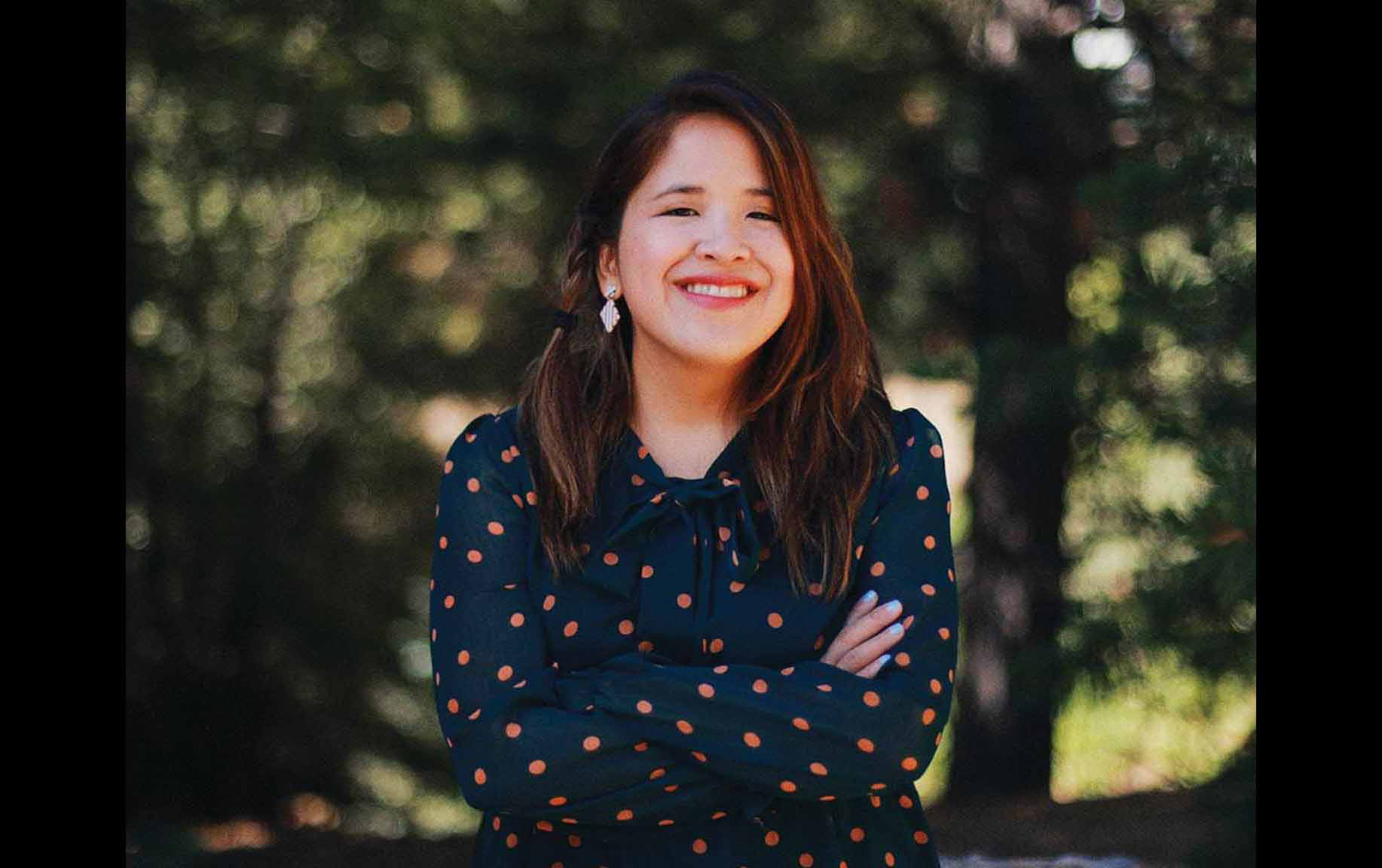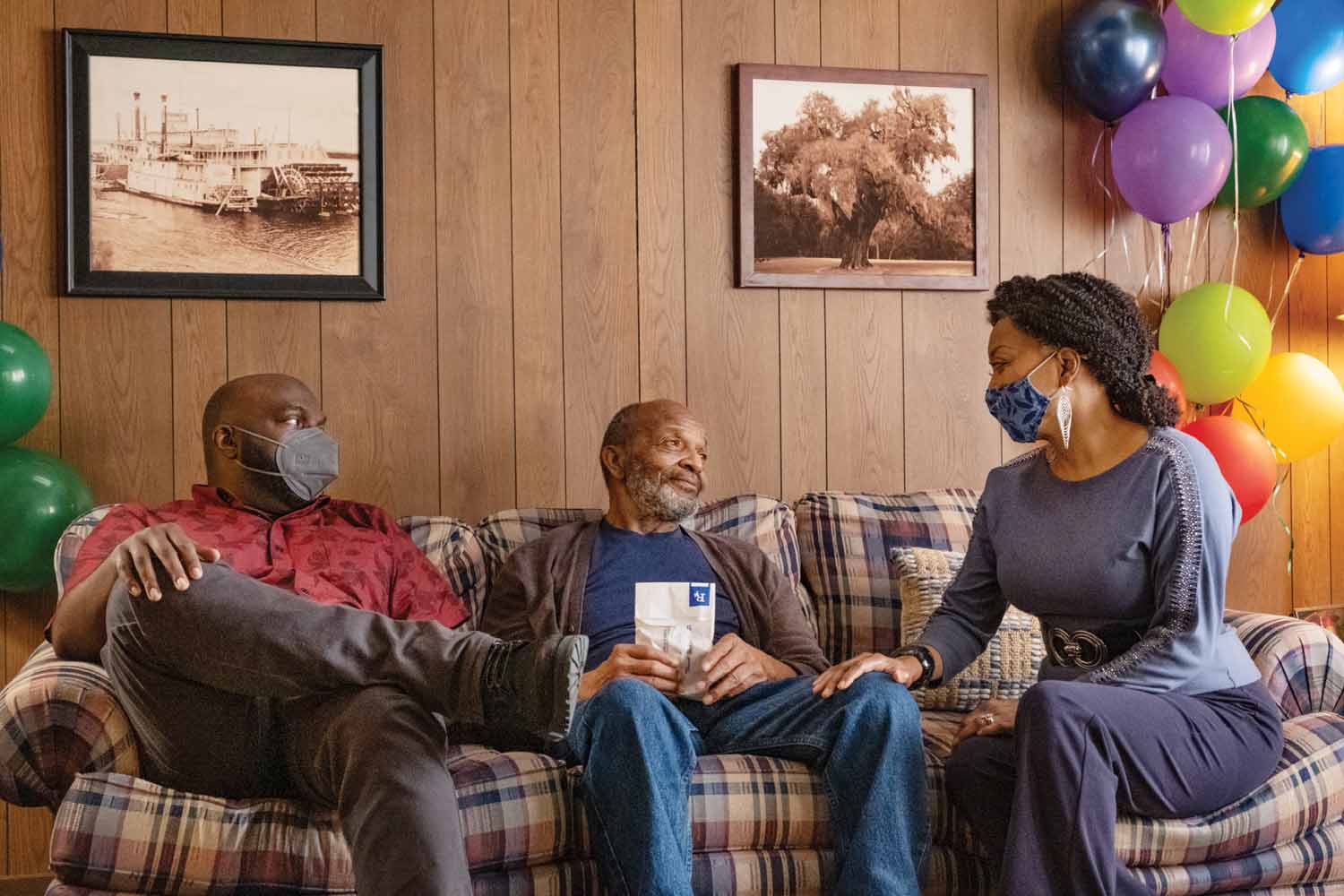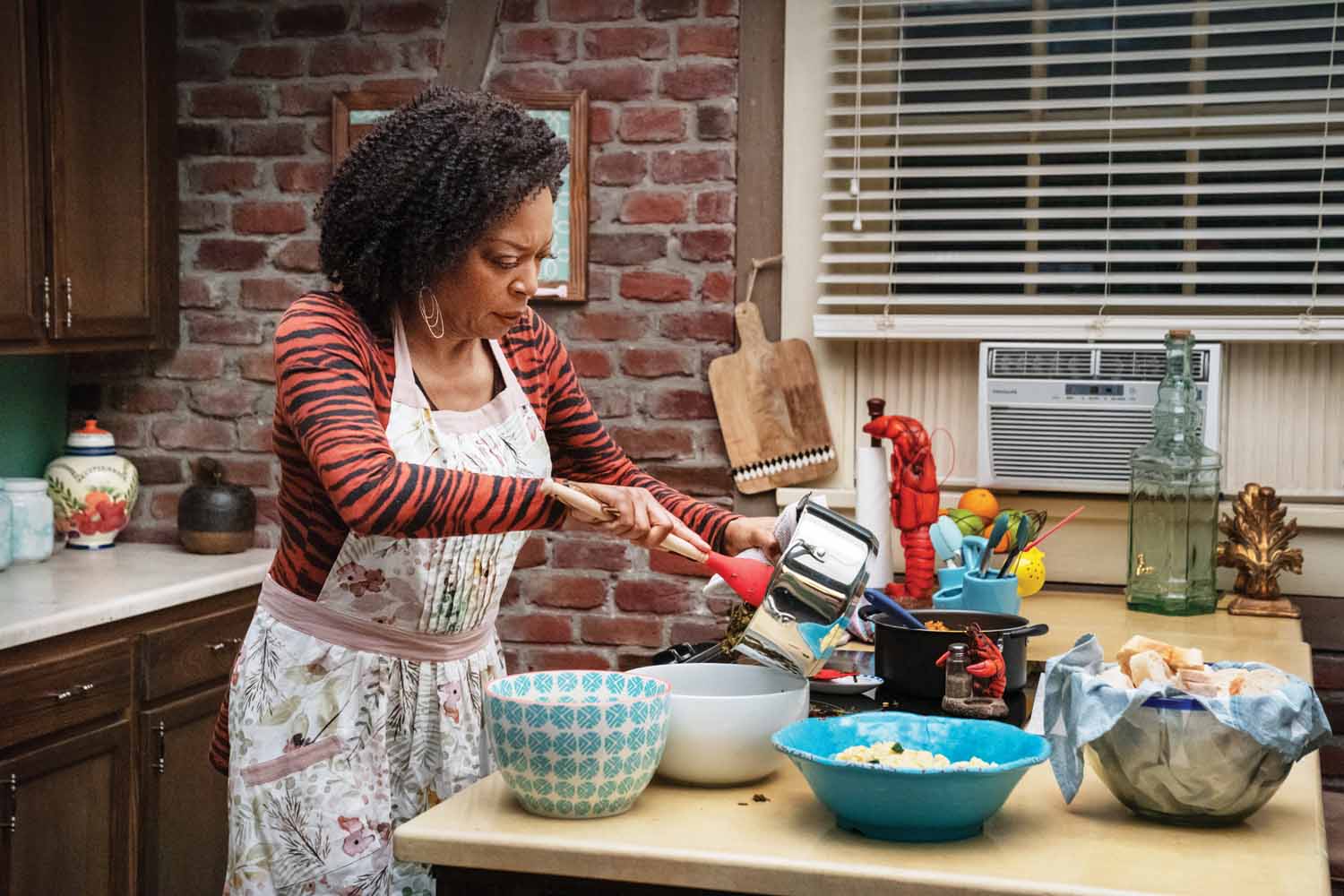
EVEN though the current Hollywood landscape still leans white and male, the calls for diversity and more sophisticated representations and renderings of communities of color ring loud and clear.
As the hunger for more diverse storytelling continues to pressure major entertainment brands to expand the threshold of opportunity, figures like Oprah Winfrey (who heads the Oprah Winfrey Network, or OWN) and Ava DuVernay are tilling a level playing field for creators of color.
DuVernay’s drama series “Queen Sugar” — which airs on Tuesdays on OWN — first made waves in 2016 with its revolutionary mission of a racially and ethnically diverse all-female directorial team. Every episode of every season has been directed by a woman, fulfilling a necessary obligation in the predominantly male field of television directing.

Photo by Skip Bolen © 2021 Warner Bros. Entertainment Inc. / Courtesy of OWN
Filipina director Marie Jamora directed the show’s third episode of its sixth (and current) season, “You Would Come Back Different,” which aired on Tuesday, Sept. 21. The episode was Jamora’s television directorial debut.
“It was just a culmination of all these feelings,” Jamora, 42, told the Asian Journal in a recent phone interview. “It was an honor and it was a blessing because only a handful of women get this opportunity.”
Previously, Jamora was a highly sought-after director of music videos and commercials in the Philippines, garnering eight awards and 30 nominations from every Filipino music institution for her work, including a 2006 Best Director win for the music video for “Sugod” by Sandwich.
She has also worked on over a dozen short films and, in 2012, directed her first feature film, “What Isn’t There (Ang Nawawala),” which Jamora entered into the Cinemalaya Philippine Independent Film Festival, the most prestigious indie film platform in the Philippines.
In 2019, Jamora (and her organization Cinema Sala, which showcases Filipino American work in film and performing arts) helped DuVernay and ARRAY curate a Fil-Am film festival at the ARRAY campus in Historic Filipinotown in Los Angeles.
That same year, ARRAY invited Jamora to a summit in North Carolina as one of 14 community leaders from a variety of communities serving creatives of color. There, DuVernay and ARRAY gave Jamora and Cinema Sala a $10,000 grant and “the tools to sustain our organizations and expand for the next year.
“I got to know Ava personally from that and about two months later, she texted me and invited me to direct an episode of ‘Queen Sugar,’” she explained.
From then, Jamora’s relationship with ARRAY and DuVernay blossomed. Working with DuVernay — who has, on many occasions, helped amplify the work of Filipino filmmakers — proved to be a crucial turning point.

Jamora said, “When I saw how Ava works on ‘Queen Sugar’ I realized I wasn’t working hard enough in my life. Every minute of her day she spends working on one of her millions of projects, and you can tell “Queen Sugar” means so much to her. She inspires me to be like, ‘Hey, Marie, you gotta kick your ass here. You’re not working hard enough.’”
“They could see that there was really a hunger for Filipino stories that was not being fulfilled,” Jamora shared, noting ARRAY’s distribution of fellow Filipina American filmmaker Isabel Sandoval’s “Lingua Franca” last year.
Born and raised in Manila, Jamora cultivated her love for cinema as a young girl when her uncle — who escaped the chaos of the martial era of the Philippines and immigrated to the United States — would tape American films and television shows and send them back to Jamora’s family.
As a child of the 1980s and 1990s, Jamora frequently watched the films of John Hughes, “The Godfather” trilogy, “Labyrinth,” and episodes of “Family Ties and “The Cosby Show,” the latter of which was influential for its portrayal of “a family of color” with the parents in successful, white-collar professions. (Like Claire and Cliff Huxtable, Jamora’s grandmother was a lawyer and her father is a doctor.)
“We just loved watching it. We didn’t watch any local television — we watched these feats of American movies and TV shows. Every member of our family became a movie buff, and this appreciation was really ingrained in me, and I think that just translated into making it into a career,” said Jamora, who has siblings who are also in creative fields: a sister who is a journalist and writer; another sister who is an actress and theatre director in the Philippines; and a brother who is a chef.
In the middle of her fruitful career in music video directing, Jamora earned an MFA in Film at Columbia University in New York City. When she fully immigrated to the U.S., Jamora felt that Filipino voices and stories weren’t being as amplified as they should be.
In 2016, she and her husband, Jason McLagan, founded Cinema Sala, a screening and workshop series geared toward Filipino artists in all creative disciplines. In addition to partnering with ARRAY, Cinema Sala has also collaborated with the American Film Institute (AFI), Coalition of Asian Pacifics in Entertainment (CAPE) and Visual Communications.
After becoming the first director of Filipino descent to be accepted into AFI’s Directing Workshop for Women, earlier this year, Jamora was welcomed into the Director’s Guild of America (DGA), the largest union representing directors and directorial crew members.
Historically, the DGA has been predominantly white and predominantly male, so being accepted into the DGA — which serves the likes of DuVernay, Steven Spielberg, Steven Soderbergh, Christopher Nolan and nearly every major filmmaker alive — was a milestone for Jamora.
“It’s one of those things where if you don’t see it you can’t believe it,” Jamora said of the lack of Filipina representation in film institutions like the DGA. “I think we do have a lot of directors [in the Filipino community] but anytime a Filipino can make big strides in the industry and others people can see, you can keep the door open.”
“We’re hard-working, we have a vision and we want to tell our stories, and anytime we can make strides in that direction, we can have our own showrunners and stories on television,” she explained. “And I do feel that that’s happening right now. It’s a really great time to be Filipino in Hollywood.”





